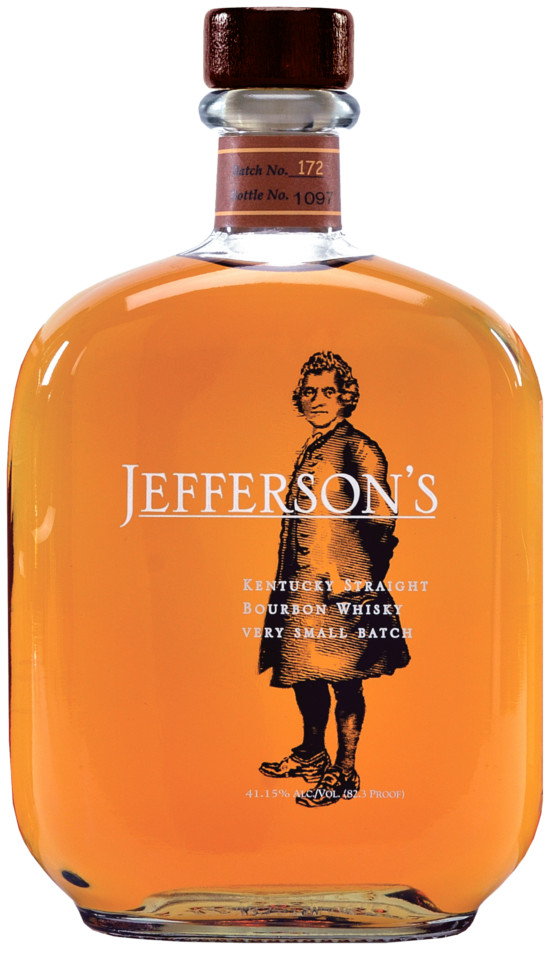Thomas Jefferson may have a whiskey named after him, but maybe not for the reasons you think…
When the Jefferson’s brand of whiskey was launched in 1997, the brand said that Trey Zoeller chose the name Jefferson’s “because the bourbon was inspired by Thomas Jefferson’s curiosity, experimental spirit and good taste.” When Reid Mitenbuler (author of Bourbon Empire) asked Zoeller admitted, “I had no marketing budget. I simply wanted a recognizable face associated with history and tradition.” Even if the whiskey wasn’t thoughtfully named after Jefferson, the history of his association with and his connection to whiskey is interesting…
After the Revolutionary War, the country (the government) needed revenue to pull itself out of debt. Alexander Hamilton was appointed by George Washington as Secretary of the Treasury and he favored an excise tax on spirits to raise funds. Hamilton had a predisposition toward taxing alcohol beverages. In Federalist 12, he had stated:
“The single article of ardent spirits, under Federal regulation, might be made to furnish a considerable revenue. Upon a ratio to the importation into this State [i.e., New York], the whole quantity imported into the United States may be estimated at four millions of Gallons; which at a shilling per gallon would produce two hundred thousand pounds. That article would well bear this rate of duty; and if it should tend to diminish the consumption of it, such an effect would be equally favorable to the agriculture, to the economy, to the morals and to the health of the society. There is perhaps nothing so much a subject of national extravagance, as these spirits.”
Now Jefferson was not a big fan of Hamilton or his Federalist ideas. Hamilton was a staunch supporter of creating a government similar to that of England. Jefferson said of Hamilton (after his death), “Hamilton was indeed a singular character of acute understanding, disinterested, honest, and honorable in all private transactions, amiable in society, and duly valuing virtue in private life—yet so bewitched and perverted by the British example as to be under thorough conviction that corruption was essential to the government of a nation.” Jefferson saw the future of America in agriculture, with the small farmer being the quintessential American. He viewed banks and long-term debt as inherently evil, or at least suspect. Whiskey producers at the time were farmer/distillers and they made most of their living by selling or trading whiskey.
Hamilton implemented the whiskey excise tax in 1791 and the rebellions began. America had just gotten rid of British rule and were still hostile toward the idea of taxes even if they were to establish a new American government. The Whiskey Rebellion in 1794 was due to western Pennsylvanians rejecting Hamilton’s new excise tax.
When Jefferson was running for President in 1800, he pledged to repeal the whiskey tax and was able to gain the support to win the election, if only by a small margin, over Aaron Burr. The tax was repealed in 1802. Jefferson was credited with winning the election by getting the “whiskey vote”, but in truth it was probably more likely that he won because of the support of Alexander Hamilton. Even if the two men were at odds, Hamilton supported Jefferson over Burr. The story goes that Burr hated Hamilton for interfering in the election and this hostility contributed to the famous pistol duel between the two men. (Hamilton accused Burr of something-no one quite knows what but it was enough to cause Burr to challenge him to a duel!) On July 11 1804, Burr killed Hamilton with a single shot.
Excise taxes weren’t seen again until the War of 1812 needed to be paid for. Those taxes were abolished in 1834 by Andrew Jackson when the debts were paid. They wouldn’t be seen again until Lincoln reestablished them after the Civil War in order to pay for that.


